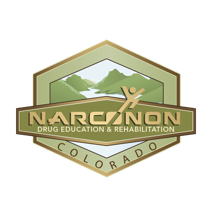Alcohol: The Quarantine Drug of Choice

The year 2020, being the strange year that it was, seems to have brought forth a surge in alcohol abuse in the U.S. Quarantine and the fear of COVID-19 caused many people to experience anxiety, depression, and fear, potentially leading more people down the path of substance abuse as a means to cope. A major study conducted by the RAND Corporation has shown a steep increase in alcohol consumption over the last year, due in part to quarantine and COVID-19.
The pandemic caused people to lose their jobs, income, and purpose at an unprecedented rate. According to the U.S. Bureau of Labor Statistics, “in July, 31.3 million people reported that they had been unable to work at some point in the last 4 weeks because their employer closed or lost business due to the coronavirus pandemic—that is, they did not work at all or worked fewer hours. This figure was down from 40.4 million in June and 49.8 million in May. The figure for July represented 12 percent of the civilian noninstitutional population, down from 16 percent in June and 19 percent in May.”
It seemed that overnight, the world was turned upside down, and those who at one point had a stable job and income were now filling out unemployment paperwork. The very fabric of life was torn and many were put far outside their comfort zones. Orders to stay at home and quarantine furthered already elevated levels of anxiety caused by fear of contracting what was said to be a contagious and potentially deadly illness. What happened next could have been expected and was probably predicted by some addiction professionals. Rates of alcohol consumption jumped which lead to more and more individuals reaching out for professional help, specifically for alcohol.
COVID-19 stressed many people to their absolute limits. Interestingly, as many non-essential businesses closed, liquor stores (and marijuana dispensaries in some states) were kept open and placed in the “essential businesses” category. This allowed easy access to liquor in a time of stress and more problematically, boredom. A study that was conducted by the RAND Corporation and published by the National Institute of Health, showed that over the last year the adult consumption of alcohol increased by a statistical significance over the previous year.
The test group contained males and females between the ages of 30 and 59 years old. Over the course of the one-year study, males showed an increase in alcohol consumption of 14% over the previous year and women showed a 17% increase for overall alcohol consumption. Interestingly, the female test group showed a staggering 41% increase in days of heavy drinking, specifically.
The study does not specifically correlate this increase in alcohol consumption directly with COVID-19 and the onset of last year’s pandemic, but it does show significant increases in the drinking habits of men and women over the course of 2020 as compared to the previous year. The main difference in 2020 versus 2019 was COVID and quarantine. It’s important that anyone who’s fallen victim to alcohol addiction, whether it’s been newly created or not, gets the proper help to handle their issue and find sobriety. Each new year adds new stressors and things that exacerbate anxiety. A lack of coping skills makes drugs and alcohol a very easy solution to handle stress and anxiety and it takes almost no effort. The best thing anyone can do is reach out for professional help if certain behaviors have gotten out-of-control.
Source:
- https://www.ncbi.nlm.nih.gov/pmc/articles/PMC7525354/
- https://www.bls.gov/cps/effects-of-the-coronavirus-covid-19-pandemic.htm
